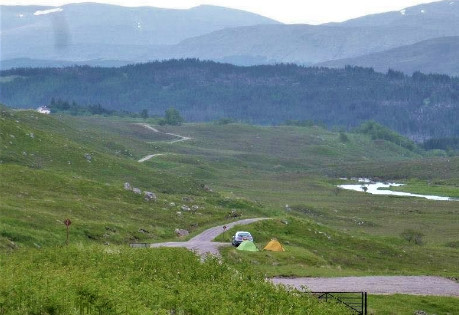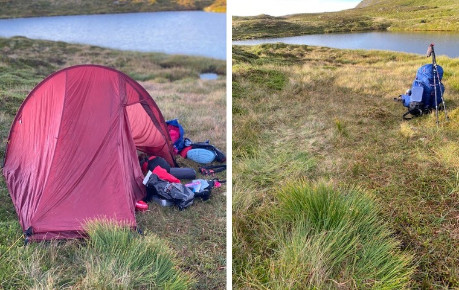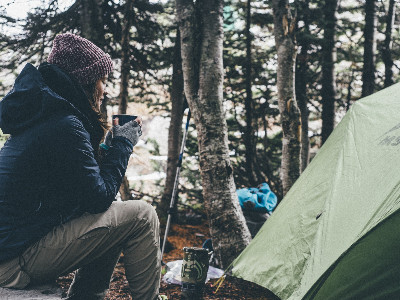Roadside camping is a popular pastime and, although very different from what mountaineers would call wild camping is still lawful when done responsibly and considerately.
However if done without consideration for others it can have unwanted impacts on the environment and on local communities:

Photo by Cat Marcol.
Keep our environment clean and safe by taking all rubbish home. Check the camp site before you go and leave it as if you had never been there – how you would like it to be as you arrive.
Consider using reusable containers rather than disposable, single-use packaging for food and drink, where possible.
If tents and kit are wet as you break camp, bundle them up in a large bag and take them home to dry them out. Never leave your camping kit behind.
If picking up litter left by other people, do it safely and be COVID aware. Please bear in mind health and hygiene and only pick up rubbish that you feel safe and comfortable collecting.
Our message is simple – if we don’t pick up litter, who will?
Learn more about our anti-litter campaign #TakItHame

The overnight pitch before and after camping - completely cleared. Pic by Debbie Parker.
It is advisable to take a few litres of drinking water with you as clean burn water may not easily be found in places, particularly when roadside camping.
Take water from a flowing stream rather than still water and avoid water sources which are obviously muddied or where there is a lot of livestock.
Don't draw water from below where someone has been washing themselves or their mess tins. Do your cleaning downstream of the camping sites.
If in doubt, boil the water before drinking or use sterilising tablets, solutions or filters
Be aware of water-borne infections and their symptoms. Seek treatment if you observe them. Find out more here.

Camping stoves cook food quickly, efficiently and cleanly and are to be preferred to campfires. A stove is light, easy to pack away and carry. Make sure you have spare fuel with you.
Camping stoves don’t cause environmental damage whereas camp fires can easily scorch the ground and damage grass, heather and trees, sometimes leading to wildfires that burn woods and hillsides, especially in dry weather.
Never light an open fire during prolonged dry periods or in areas such as forests, woods, farmland or on peaty ground. Peaty soils can retain the heat undetected and flare up again later.
If a camp fire is appropriate then keep it small and under control and pick a spot on a hard ground like rocks or sand that won’t leave scorch marks. Lighting and managing a campfire responsibly is a skill and takes some expertise.
Bring your own fuel if intending to have a campfire – deadwood may be in short supply if camping away from woodlands. Avoid using up all the deadwood as it is important for woodland wildlife to have deadwood to rot down.
Make sure a campfire is properly extinguished and remove all traces of an open fire before you leave.

Mountaineering Scotland campaigns on behalf of Scotland's hill walkers, climbers, mountaineers and ski tourers, with over 16,000 members from all walks of life.
Membership of Mountaineering Scotland supports the work we do, from campaigning and protecting mountain landscapes and access, to promoting skills, responsible access and self-reliance for those who visit Scotland's hills, crags and climbing walls.
Membership is excellent value at less than £3 a month for adults, and includes public and civil liability insurance, a range of member discounts and offers, access to great value mountain skills courses, Scottish Mountaineer magazine and more. Read more about our membership benefits.